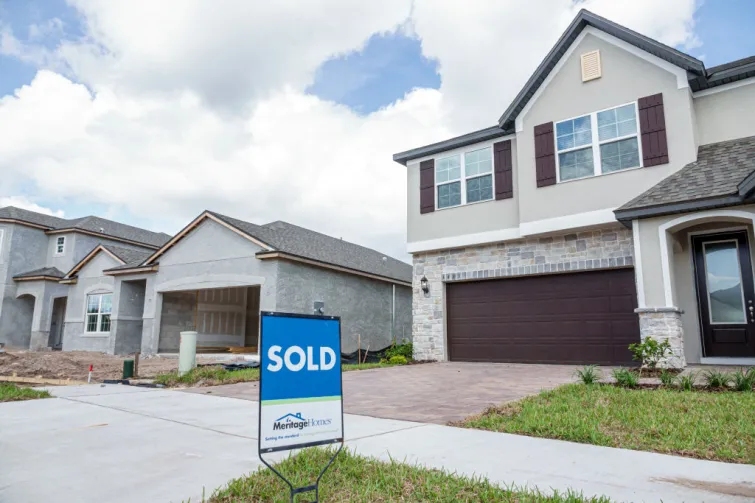
In the initial quarter of this calendar year, housing sales saw a remarkable 41% increase, climbing to 120,640 units from 85,840 units recorded during the corresponding period in the previous year.
Dynamic Growth in India’s Real Estate Sector
The real estate sector in India witnessed a significant surge in housing sales during the first quarter of 2024, reflecting both a rise in value and volume. As per a report from PropTiger.com, residential properties valued at Rs 1.11 lakh crore (1,100,000,000,000) changed hands between January 2024 and March 2024, marking a remarkable 68% increase in value compared to the corresponding period last year. This upswing underscores heightened demand and signifies a notable escalation in property prices, particularly in key business districts.
Significant Surge in Housing Sales
According to data from a real estate company, there was a 41% increase in housing sales, with 120,640 units sold in the first quarter of this calendar year, compared to 85,840 units in the same period of the previous year.
Concentrated Real Estate Demand in Four Key Cities
Under Ankita Sood’s analysis, Head of Research at a real estate company, the first quarter witnessed an exceptional 68% surge in the Gross Transaction Value of property sales compared to the previous year’s Q1. Remarkably, major urban centres including Mumbai, Hyderabad, Delhi NCR, and Pune collectively contributed 76% of the total transaction value amounting to Rs 1.11 lakh crore. This surge indicates heightened demand and reflects a notable increase of 15-20% in property prices within crucial business districts. Anticipating sustained momentum, Sood predicts continued growth over the next two quarters driven by economic expansion and robust demand.
Urban Housing Sales Distribution
The list was led by Mumbai, which recorded the highest number of housing sales, followed by Pune, Hyderabad, Ahmedabad, Delhi NCR, and other regions.
Distribution of Housing Sales Value by City
Mumbai took the top spot in terms of the value of property transactions, followed by Hyderabad, Bangalore, Delhi NCR, and other regions.
Economic Impacts and Related Industries
Offering his insights, Mr Vikas Wadhawan, Group CFO of REA India, The growth observed in housing sales, both in terms of volume and value, bodes well for the broader economy, given the dependency of over 200 ancillary industries, such as cement and steel, on the real estate sector.” He continued, “India’s housing market is experiencing a remarkable phase. Residential property sales in the top eight primary markets have been surging, driven by strong economic growth, stable mortgage rates, and an increasing desire for homeownership. With investor confidence gradually rebounding and robust demand from Non-Resident Indians, the trajectory of housing demand seems set for substantial growth, barring any unexpected spikes in prices.”
Driving Factors Behind the Real Estate Surge
Ankita Sood credits various factors for the upsurge in housing sales. She highlights the steady interest rates, favourable economic circumstances, and rapid infrastructure enhancements, especially in prominent urban hubs like the National Capital Region (NCR) and the Mumbai Metropolitan Region (MMR). Together, these elements foster an environment conducive to thriving real estate operations.

